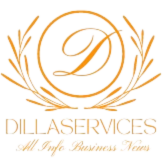
Pharmacy plays a vital role in the healthcare ecosystem, serving as a fundamental link between patients and their essential medications. The field encompasses a wide array of functions, including the preparation, distribution, and monitoring of pharmaceutical products, as well as the provision of patient education and advocacy for public health. pafikotandolo.org As the dynamics of healthcare continue to shift, the importance of pharmacy becomes ever more pronounced, showcasing the indispensable contributions of pharmacists in improving patient outcomes and ensuring the safe administration of medications.
The Historical Development of Pharmacy
The roots of pharmacy can be traced back to ancient societies that relied on natural substances for therapeutic purposes. The Sumerians, Egyptians, and Greeks are among the earliest civilizations documented to utilize various plants and minerals for healing. Ancient texts, such as the Ebers Papyrus from Egypt, reveal an extensive knowledge of herbal remedies, illustrating the historical journey toward health and wellness through nature.
In ancient Greece, advancements in pharmacology were propelled by influential figures like Hippocrates and Galen. Hippocrates, often hailed as the “Father of Medicine,” emphasized observation and ethical treatment in medical practice. Galen further contributed to this field by establishing systematic approaches to the preparation and categorization of medicinal substances, providing a foundation for modern pharmacy as a respected profession.
During the Islamic Golden Age, scholars such as Al-Razi and Ibn Sina made significant contributions to the understanding of drugs and their effects. Their rigorous methodologies and empirical studies laid the groundwork for future developments in pharmacology, enriching the discipline with new knowledge and practices that continue to inform contemporary pharmacy.
The Transition to Modern Pharmaceutical Practices
The evolution toward modern pharmacy practices gained momentum during the Renaissance, a period marked by scientific exploration and innovation. This era facilitated advancements in chemistry, allowing for the isolation of active compounds from natural sources. Such scientific approaches led to the establishment of systematic drug development and quality assurance standards that are now integral to pharmacy.
The Industrial Revolution further transformed the pharmacy landscape by enabling the mass production of pharmaceuticals. The rise of pharmaceutical companies increased the availability of vital medications, making them accessible to broader segments of the population. Stringent quality control measures became the norm, ensuring that medications met the highest standards for safety and efficacy. As pharmacy education evolved, pharmacists solidified their roles as essential contributors to healthcare delivery.
In recent decades, pharmacy has shifted towards a patient-centered model. Recognizing the critical impact of medication management on health outcomes, pharmacists have expanded their roles to include direct patient care. This transformation fosters collaboration among healthcare professionals, enhancing communication and improving overall patient experiences.
The Diverse Functions of Modern Pharmacists
Today’s pharmacists engage in a wide spectrum of responsibilities that extend beyond the traditional role of dispensing medications. Community pharmacists act as accessible healthcare providers, offering essential services such as medication therapy management, health screenings, and immunizations. Their expertise empowers them to educate patients on proper medication usage, address concerns about side effects, and foster adherence to prescribed treatment regimens.
In clinical environments, pharmacists work closely with healthcare teams to optimize medication therapies for patients. Their specialized training equips them to evaluate drug regimens, identify potential drug interactions, and recommend necessary adjustments. This collaborative approach enhances patient safety and ensures that individuals receive the most effective therapies available.
Medication Therapy Management (MTM) is a crucial service offered by pharmacists, particularly for individuals managing multiple chronic illnesses. Through MTM, pharmacists conduct thorough assessments of patients’ medication regimens, identifying areas for improvement and ensuring safe and effective therapies. This proactive approach not only encourages adherence to medication schedules but also mitigates the risk of adverse drug reactions.
Technological Advances Shaping Pharmacy Practice
Technological innovations have profoundly impacted pharmacy practice, leading to increased efficiency and improved patient safety. The integration of electronic health records (EHRs) and e-prescribing systems has streamlined communication among healthcare providers, significantly reducing the potential for medication errors. Pharmacists now have access to real-time patient data, enabling informed decision-making regarding therapeutic options.
The advent of online pharmacies has also transformed how patients access medications. Websites such as pafikotandolo.org provide convenient platforms for individuals to obtain prescriptions and seek health-related information. However, this shift raises concerns about the legitimacy and safety of online sources. Pharmacists play an essential role in guiding patients toward reputable online pharmacies, helping them navigate the potential risks associated with unregulated sites.
Telepharmacy has emerged as an innovative solution to enhance healthcare accessibility, particularly for those living in remote or underserved areas. This model allows pharmacists to provide consultations and medication management services remotely, ensuring that patients receive necessary care regardless of geographical constraints. Telepharmacy not only improves access to medications but also fosters continuity of care.
Ethical and Legal Aspects of Pharmacy Practice
Pharmacy practice operates within a complex framework of legal and ethical responsibilities. Pharmacists must navigate a myriad of regulations to ensure the safe and appropriate use of medications. This is particularly important in managing controlled substances, where pharmacists are tasked with monitoring prescriptions and preventing misuse.
Prescription Drug Monitoring Programs (PDMPs) are vital tools that assist pharmacists in tracking the prescribing and dispensing of controlled substances. These programs help identify patterns of over-prescribing and support initiatives aimed at addressing substance misuse. Striking a balance between effective pain management and the prevention of drug misuse presents ongoing ethical challenges for pharmacy professionals.
Pharmacists may also encounter ethical dilemmas when personal beliefs conflict with their professional responsibilities. For instance, some pharmacists may refuse to dispense certain medications, such as emergency contraception, based on personal convictions. In such instances, it is essential for pharmacists to navigate these ethical complexities while ensuring that patients maintain access to necessary medications.
Promoting Public Health and Community Wellness
Pharmacists increasingly serve as advocates for public health, engaging in initiatives that promote wellness and disease prevention. Their accessibility positions them to provide essential preventive care services, including vaccinations and health screenings. These services are particularly crucial during public health emergencies, where pharmacists can play a significant role in disseminating information and facilitating vaccination efforts.
During the COVID-19 pandemic, pharmacists emerged as frontline healthcare providers, significantly contributing to vaccine distribution and public health education. Their presence within communities enabled efficient vaccination efforts, helping to protect vulnerable populations and curb the spread of the virus.
Pharmacists also participate in health promotion activities, conducting screenings for chronic conditions like hypertension and diabetes. By identifying at-risk individuals and providing timely interventions, pharmacists contribute to enhanced health outcomes and improve the overall well-being of their communities.
The Future Landscape of Pharmacy
The future of pharmacy is poised for transformative advancements driven by innovations in personalized medicine. Pharmacogenomics, which studies how genetic variations influence individual responses to medications, has the potential to revolutionize treatment strategies. By tailoring therapies to patients’ unique genetic profiles, pharmacists can enhance therapeutic effectiveness and minimize the risk of adverse effects.
Emerging drug delivery systems, including nanotechnology and targeted therapies, promise to reshape pharmaceutical care. These innovations are expected to improve treatment outcomes, particularly for complex diseases such as cancer. Pharmacists will need to stay informed about these developments to effectively integrate them into patient care practices.
Artificial intelligence (AI) is also making significant inroads into pharmacy. AI technologies can assist pharmacists in analyzing patient data, predicting drug interactions, and optimizing medication regimens. As technology continues to evolve, pharmacists will increasingly focus on enhancing direct patient engagement, reinforcing their role as integral members of the healthcare team.
In summary, pharmacy is a dynamic and essential profession within the healthcare landscape. Pharmacists are not merely dispensers of medications; they are knowledgeable healthcare providers dedicated to improving patient care, advocating for community health, and advancing the field of medicine. As the profession continues to evolve, pharmacists will remain at the forefront of healthcare delivery, ensuring that patients receive safe, effective, and personalized treatments tailored to their individual needs.
